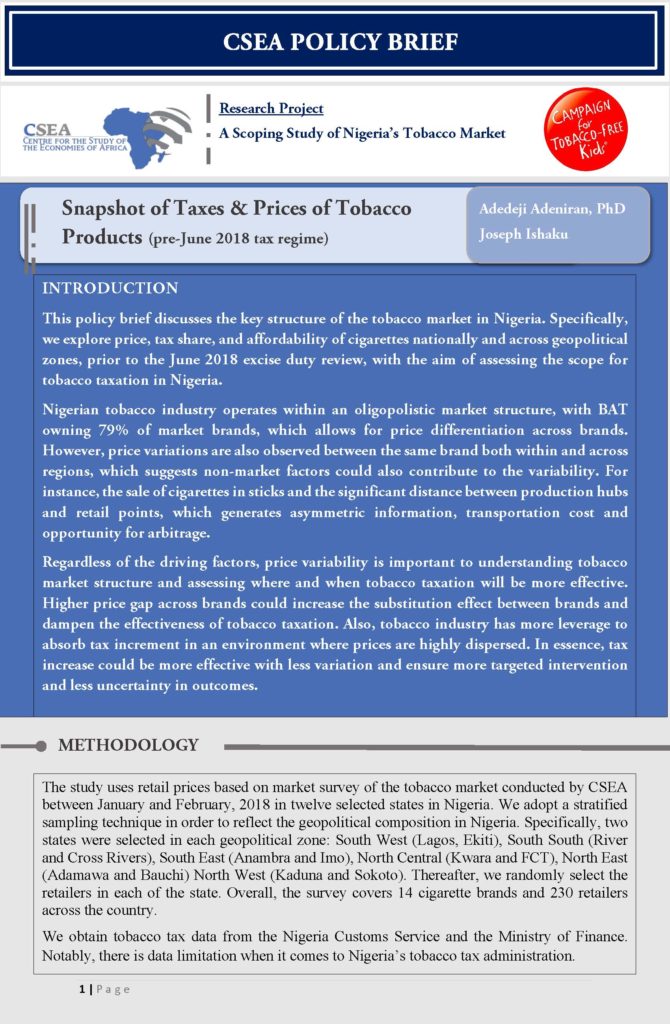Nigerian tobacco industry operates within an oligopolistic market structure, with BAT owning 79% of market brands, which allows for price differentiation across brands. However, price variations are also observed between the same brand both within and across regions, which suggests non-market factors could also contribute to the variability. For instance, the sale of cigarettes in sticks and the significant distance between production hubs and retail points, which generates asymmetric information, transportation cost and opportunity for arbitrage.
Policy Brief & Alerts

January 22, 2019
Snapshot of Taxes & Prices of Tobacco Products
Nigerian tobacco industry operates within an oligopolistic market structure, with BAT owning 79% of market brands, which allows for price differentiation across brands. However, price variations are also observed between the same brand both within and across regions, which suggests non-market factors could also contribute to the variability. For instance, the sale of cigarettes in […]
Read →
Related
Nigeria Economic Update (Issue 38)
Recent
NBS data on Nigerias real GDP growth rate declined from -0.36 percent in
2016Q1 to -2.06 percent in 2016Q2. With negative GDP growth rate in
two consecutive quarters, Nigeria records its first recession in 23 years. Both
the oil and non-oil sectors continued to contract by -15.59 and -0.20
percentage points, respectively, relative to preceding quarter. The worsening
growth rate in the oil sector was largely driven by the decline in domestic crude
oil production by 14.5 percent relative to preceding quarter
Nigeria Economic Update (Issue 12)
The naira/dollar exchange rate remained largely stable at the parallel
market at ?320/$ during the period7, albeit slight
fluctuations on February 29, 2016 (?325/$) and March 2, 2016 (?328/$). The
decline in the hoarding of foreign currency as well as the substantial
reduction in the speculative demand for dollars were the two key factors
responsible for the ease of fluctuations in the forex market8. With the slight
increase in the price of crude oil, Nigerias foreign reserve slightly grew by $56 million, from 27.81 billion to $27.84 billion9.
With the continued increase in the price of crude oil, a modest build-up of
foreign reserve to guard against unfavourable commodity price movements is
expected in the near term.


